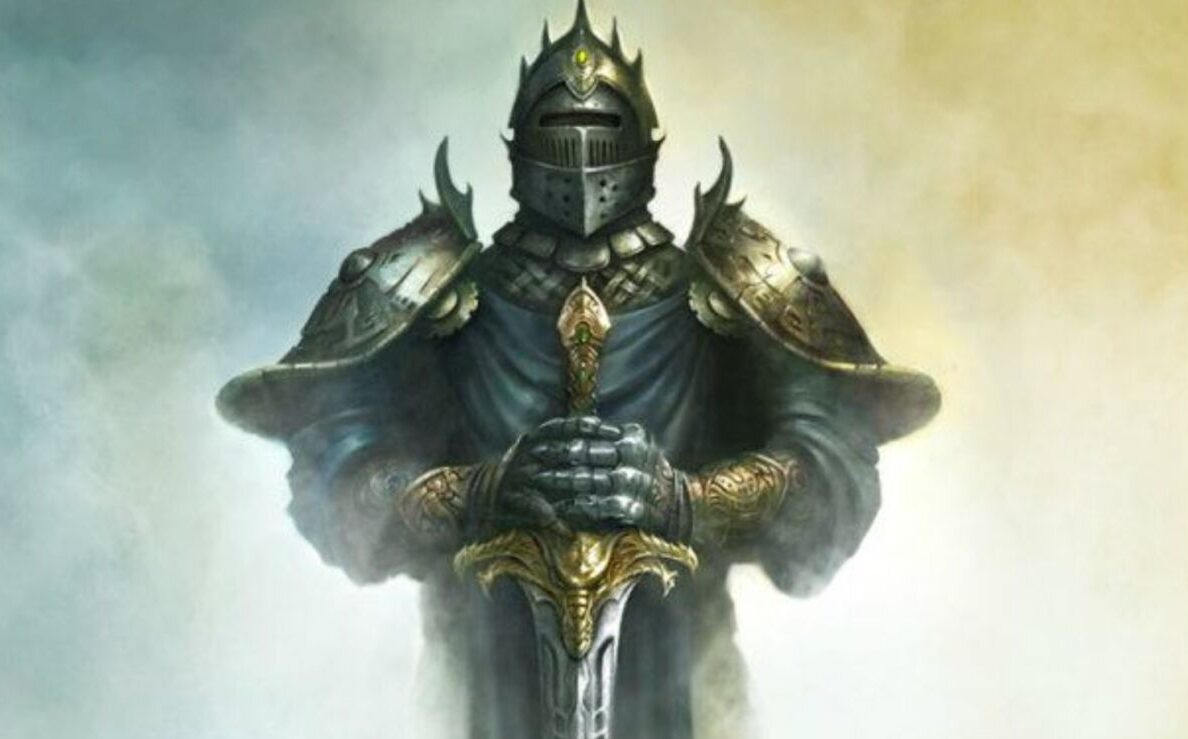Throughout the past several years the strategy genre has massively expanded in scope, though a number of tentpole games still dominate and influence discourse, game design and the video game cultural zeitgeist. As a result, many games slip through the cracks of memory and are at risk of being lost to time.
Being relegated to a footnote in video game history doesn’t do justice to their quality and level of enjoyment. With that in mind, we’ve decided to shine a light on some of the most underrated strategy games, with a limit of one title per series, to remind newcomers and veterans alike of some titles they may have missed and that deserve more attention.
1. Divinity: Dragon Commander
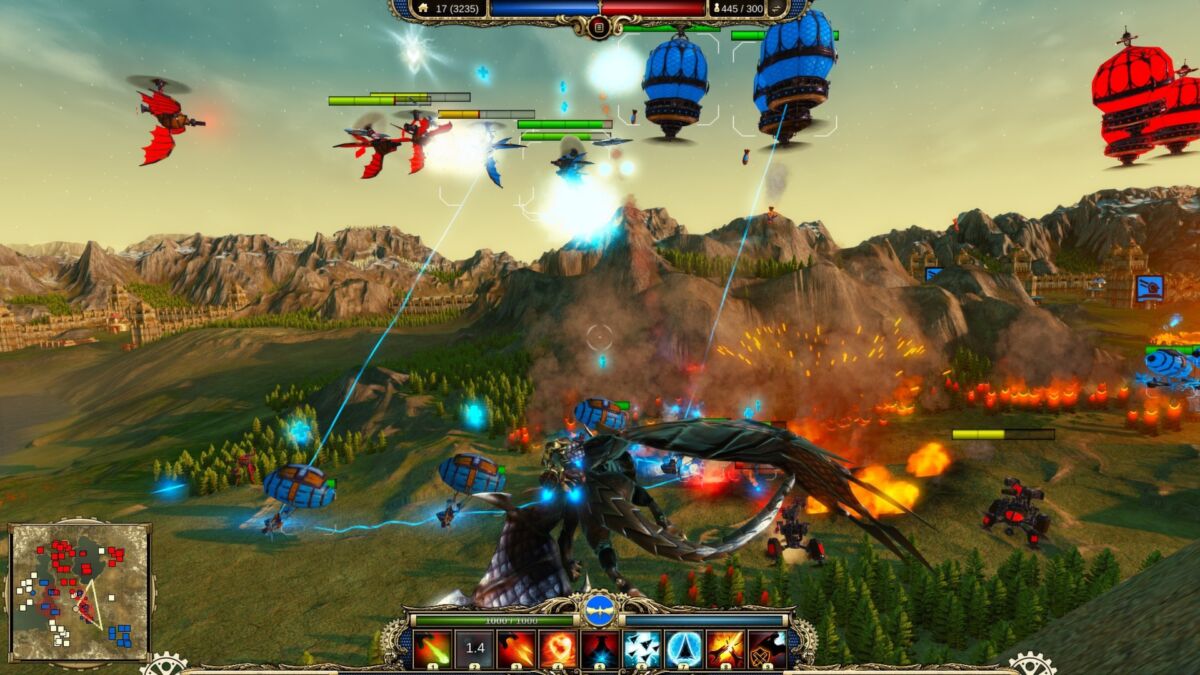
Developer: Larian Studios
Publisher: Larian Studios
Platform(s): PC
Divinity: Dragon Commander is the perfect example of a jack-of-all-trades strategy game that ambitiously incorporates a smorgasbord of different genre elements to create something truly refreshing. Players will find that Dragon Commander is a classic RTS, a third-person action game, a role-playing adventure, and even a kingdom manager all bundled together with Divinity’s distinct mesh of fantasy and steampunk lore and world-building.
Though not every element of Dragon Commander worked flawlessly in this mosaic of features, the sheer gall and courage to try a variety of approaches for the sake of a unique experience is in itself commendable and for the most part works out in the game’s favor. The effect of this compelling multi-pronged approach is that players actively learn to tackle disparate situations relating to combat, diplomacy, and even interpersonal relationships that some grand strategy games are unable to capture successfully.
One of the most common reasons for quality games not gaining the popularity they deserve is due to their surrounding context, most commonly the fact that other more anticipated and popular games launch around the same time. Dragon Commander came out during a busy period of big strategy game releases, such as Total War: Rome 2, Company of Heroes 2, and Europa Universalis 4.
In addition, Larian Studios were known more for their role-playing games set in the Divinity world, so this excursion into the strategy genre may have surprised many fans. Nevertheless, Divinity: Dragon Commander stands as an excellent example of developer ambition and drive to innovate and for that reason it is one of the most underrated strategy games of all time.
2. Field of Glory 2
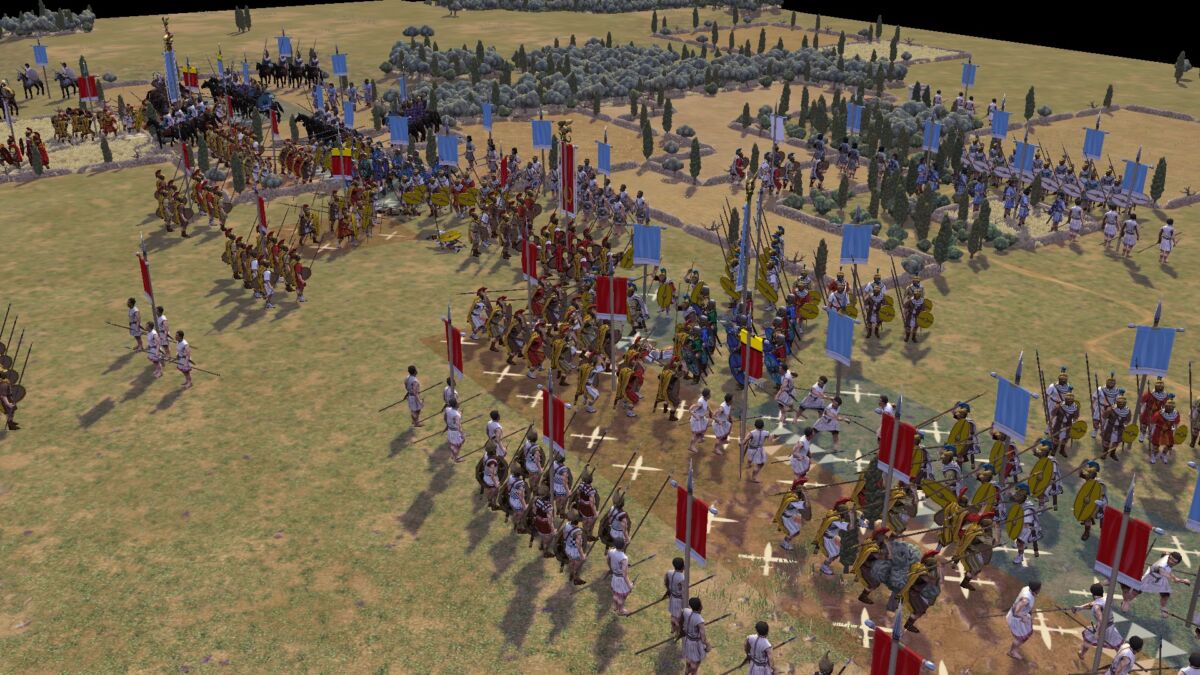
Developer: Slitherine Software, Byzantine Games
Publisher: Slitherine Software
Platform(s): PC
The entire subset of simulation wargames can arguably be called underrated, though many of these strategy games don’t exactly help themselves due to obtuse, dense, and poorly explained systems in combination with less-than-flashy graphics and questionable UI. However, more recent strategy games of this type have evolved and are actively addressing these accessibility issues and Field of Glory 2 is a prime example of this trend.
Field of Glory 2 is an adaptation of a tabletop miniatures wargame that expertly captures the tabletop aesthetic and feel, while utilizing the advantages of the virtual platform to focus the gameplay experience on the decision-making with a helpful UI and automation of systems. Due to its own historical authenticity, Field of Glory 2 easily rivals, if not exceeds, chess in tactical complexity, while maintaining the same deliberative depth and steady pace.
While the game may have a consistent and dedicated following, it hasn’t found a larger audience, despite addressing many issues of simulation wargaming without losing the meaningful and deep tactical gameplay core. Field of Glory 2 is definitely worth your attention, especially if you’re a fan of history, cerebral tactical gameplay, and quality strategy gaming in general.
3. Frozen Synapse
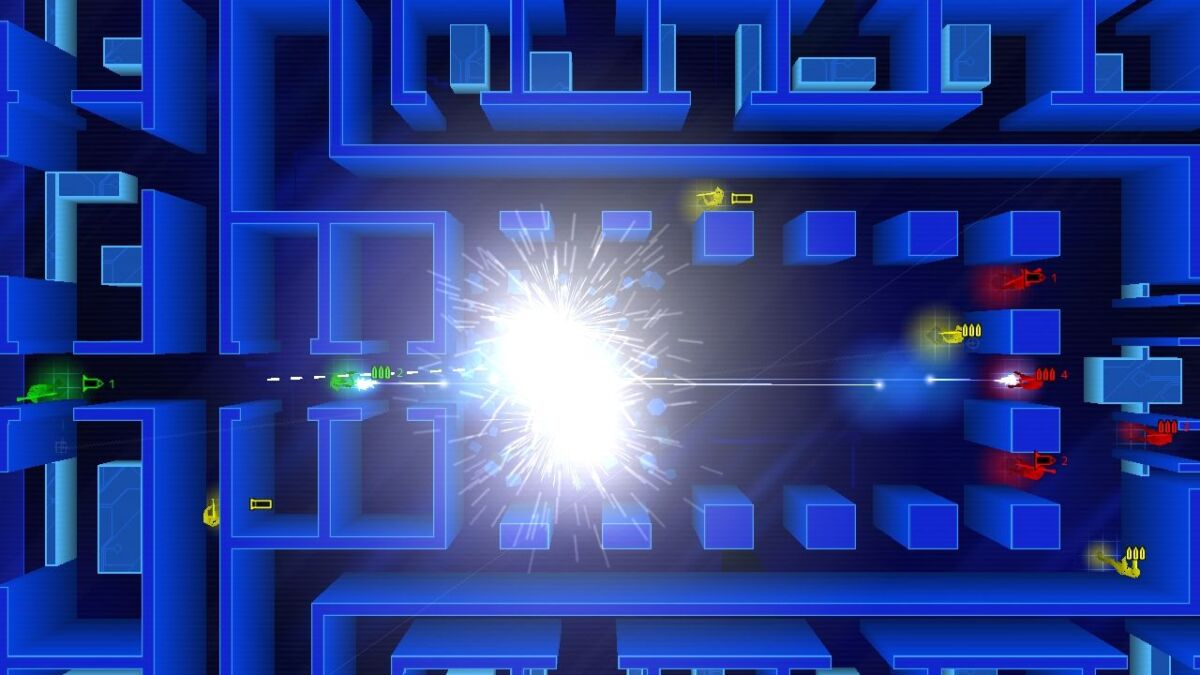
Developer: Mode 7
Publisher: Mode 7
Platform(s): PC, macOS, Linux, iOS, Android
The two biggest structural modes of strategy gaming are real-time and turn-based, yet there’s one new mode that combines elements of both, called WEGO or simultaneous turns. Arguably, this entire mode of play is underrated with full real-time and true turn-based games completely dominating strategy game design.
The WEGO approach to game structure has been around for some time, moreso in simulation wargaming like the Combat Mission series. It’s only more recently that developers have taken an interest in this style of strategy gaming with the indie tactics game Frozen Synapse acting as a kind of watershed game that coincided with the indie boom of the early 2010s. Frozen Synapse really showed the advantages of the WEGO system of play particularly in smaller-scale tactics games where the simultaneous programmable turns layered additional levels of decision-making and forethought.
The WEGO approach is definitely quite mind-bending and takes time to get used to, which may intimidate new players from trying this system over the other two tried and true modes. Frozen Synapse has faded into the background as new WEGO-style games have come to the fore, yet it remains as an important milestone and deserves recognition for its impact on modern strategy game design, especially for indie games.
4. Grey Goo
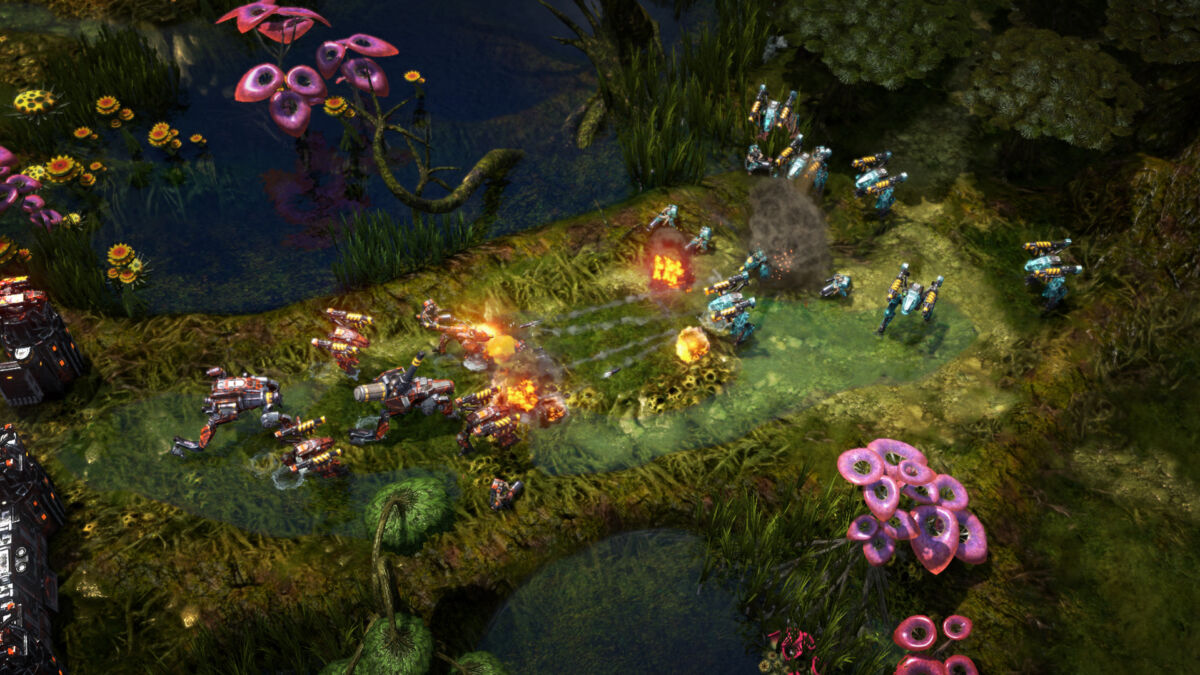
Developer: Petroglyph Games, Six Foot
Publisher: Grey Box, Six Foot
Platform(s): PC
Grey Goo unfortunately suffered the same fate as Dragon Commander in that it came out during a year of big strategy releases, such as Total War: Attila, Civilization: Beyond Earth, and the Homeworld Remastered Collection that conquered the discourse, player attention, and the market. In addition, Grey Goo’s case represents one of the main issues of classic RTSs today, which is that established titles and franchises leave no room for smaller and no less talented developer teams from trying their own hand at innovating on this subset of strategy games.
Grey Goo’s biggest selling point is right in its title, the eponymous Grey Goo faction that flips many classic RTS conventions, like base-building, on their head with a unique playstyle, aesthetic, and overall faction design. It may not be as ambitious or aggressively multi-genre as Dragon Commander, but Grey Goo still had a solid and familiar core gameplay loop that was uplifted by this novel faction.
Alas, Petroglyph’s attempt at providing something new and fresh for this well-established class of strategy games didn’t bear much fruit and was quickly forgotten. Nevertheless, The Grey Goo faction alone makes this game worth checking out, especially if looking for creative design features in a classic RTS.
5. Homeworld: Deserts of Kharak

Developer: Blackbird Interactive
Publisher: Gearbox Software
Platform(s): PC, macOS
Many of Grey Goo’s reasons for being underrated are also relevant to the discussion on the next most underrated strategy game, Homeworld: Deserts of Kharak. Arguably, Homeworld’s fate was even worse than Petroglyph’s title, in that it basically got lost to its own deserts almost immediately after its launch, whereas Grey Goo at least had a bit of time in the very small limelight.
Deserts of Kharak serves as a prequel to the much beloved space-faring original Homeworld games and has many similar systems, such as resource gathering and a more unit-focused approach to the classic RTS gameplay loop compared to an Age of Empires. Deserts of Kharak stands out as an excellent strategy game due to its production values, story, and impact of terrain on combat, something that even the original Homeworld games can’t claim significantly.
Unlike Grey Goo and Dragon Commander that had some speed bumps and rough edges, Deserts of Kharak is consistently excellent across the board and makes it all the more criminally underrated. For anyone looking to expand their knowledge on classic RTS games, this is a lost gem that will not disappoint.
6. King Arthur: The Role-Playing Wargame
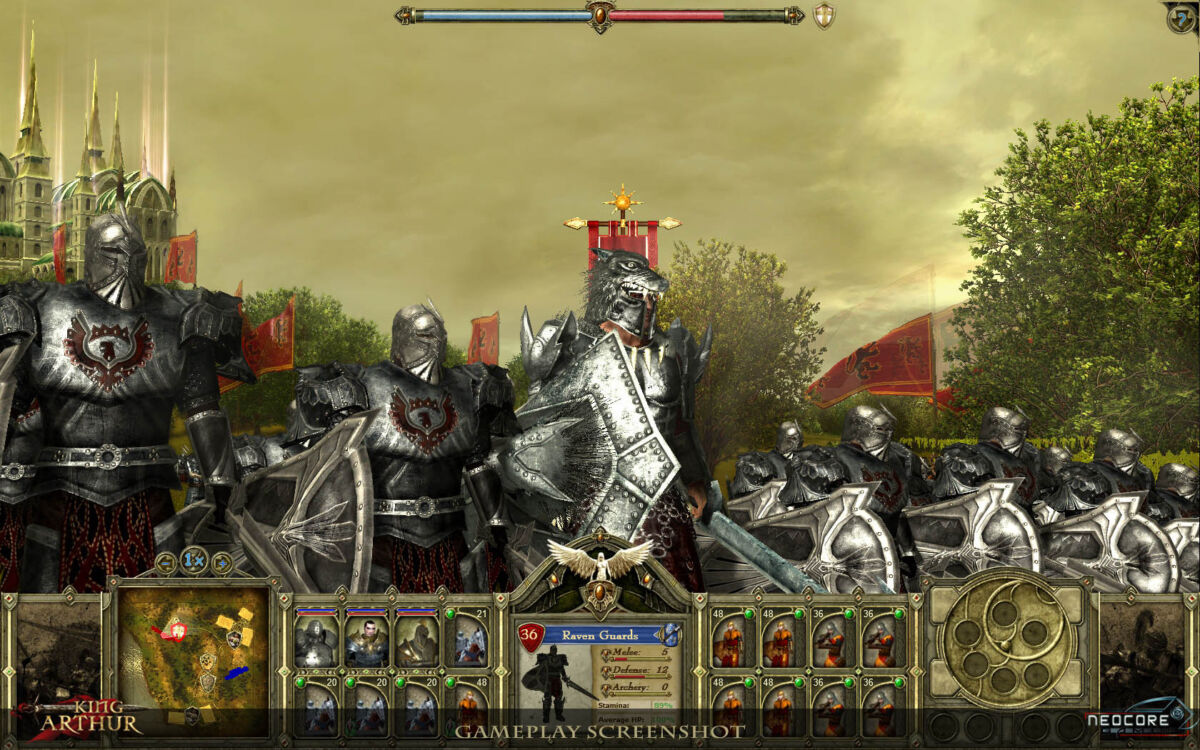
Developer: NeocoreGames
Publisher: NeocoreGames, Ubisoft, Paradox Interactive, E Frontier
Platform(s): PC
Strategy games are not only tools for problem-solving and practicing decision-making, but can also act as powerful modes of story-telling, especially if paired with role-playing and adventure systems. NeocoreGames’ King Arthur: The Role-Playing Wargame is a prime example of how role-playing can mesh with both strategic and tactical gameplay modes to create a satisfying multi-faceted experience.
King Arthur’s quality from its excellent production values for such a small game is found in the excellent voice acting, writing, exaggerated unit design, and lore that brings each adventure to life. Meanwhile, the tactical and strategic gameplay provides enough meat for players to try themselves out as battlefield commanders and rulers of the British Isles. Though it may be dated and clunky in its controls, especially the camera and tactical unit commands, altogether Neocore’s title has aged more like a fine wine, especially in its story-telling elements.
Aside from the humble size of the dev team and relatively low exposure, Arthurian legend and fantasy, while recognizable, doesn’t quite have the same cultural impact and recognition as it once had, especially compared to more modern fantasy series. Regardless, King Arthur: The Role-playing is an underrated interactive modern adaptation of classic Arthurian stories and quests that gives players the opportunity to feel what it’s like to be The Once and Future King.
7. Knights of Honor
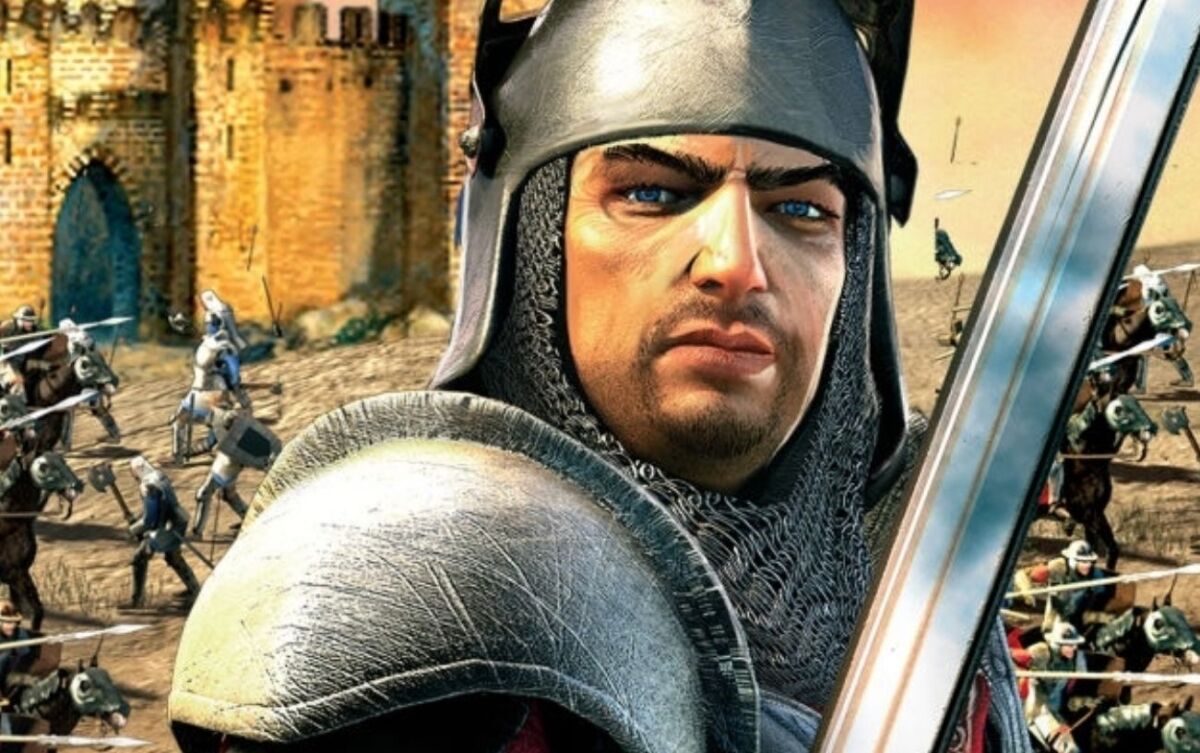
Developer: Black Sea Studios
Publisher: Paradox Interactive, Sunflowers Interactive, Atari Inc.
Platform(s): PC
Total War’s steady rise over the past decade has made it a household name in strategy gaming due to its unique blend of empire building turn-based campaigns and awe-inspiring real-time tactical combat. Few have tried and even fewer have succeeded in replicating Total War’s formula and success.
However, a humble little game called Knights of Honor that was released shortly after Creative Assembly’s breakthrough game, Rome: Total War, can claim to have successfully adapted Total War’s core gameplay while introducing enough of its own DNA to set it apart. Most prominently, Knights of Honor boasts a real-time grand strategy mode, a unique advisor and court feature, solid army area of recruitment system, and an interesting construction system.
While Knights of Honor’s combat can’t hold a candle to Total War’s massive battles, they are still fun due to their quick pace. Knights of Honor may not be able to boast exorbitant production values of its main overshadowing competitor, but it holds its own with its solid strategic gameplay that retains its compelling flow and dynamism all these years later, cementing its place as one of the most underrated strategy games of all time.
8. Planetary Annihilation: Titans
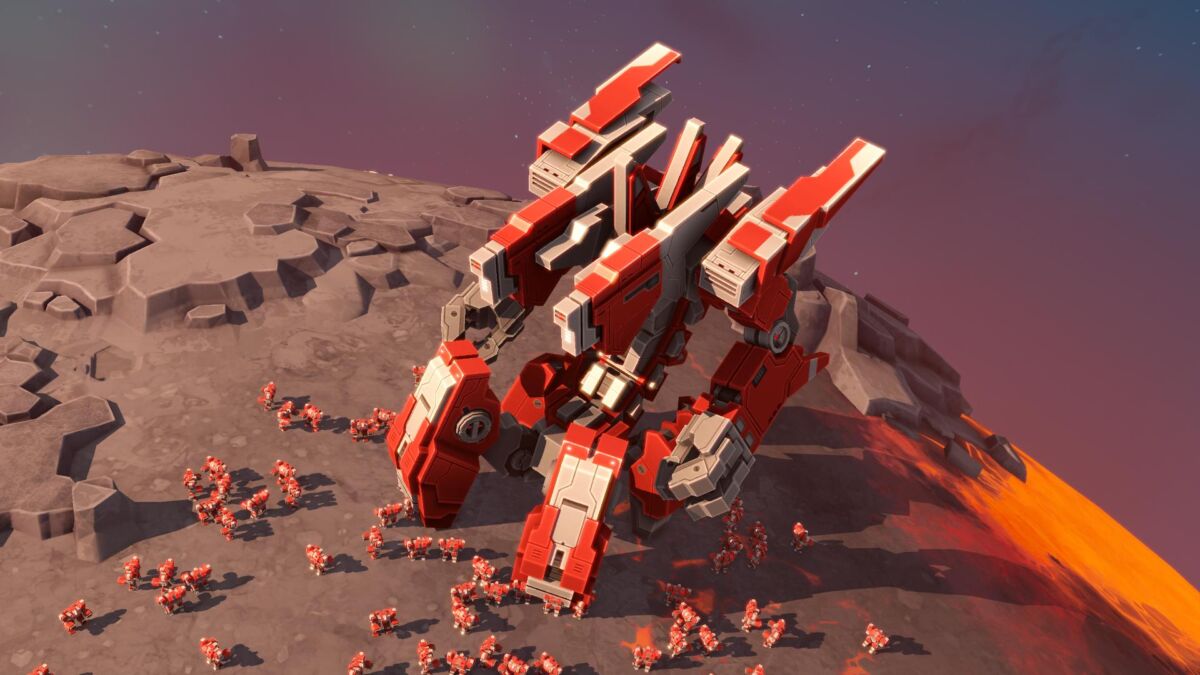
Developer: Star Theory Games, Planetary Annihilation Inc
Publisher: Planetary Annihilation Inc
Platform(s): PC, macOS
Many strategy enthusiasts still wait and clamor for the return of the highly successful Supreme Commander series with either a remaster or a sequel. Players need not look further as the evolutionary spiritual successor Planetary Annihilation: Titans scratches that itch and more so.
Planetary Annihilation boasts an incredible scale where players can wage industrial warfare not only across the surface of an entire planet, but an entire solar system with starships, satellites, megastructures, and even weaponizing celestial bodies to create super weapons. Not even the now dated, but fondly-remembered Supreme Commander can come close to the scale and possibilities that Titans offers.
The reason for Planetary Annihilation’s underrated status is that its original launch was riddled with controversy, due to stale faction design, poor business decision-making, developer disagreements on the game’s direction, and questionable game support. This is a case where player perception on apparent difficulties, as well as some gameplay missteps led to giving the game a poor reputation. The release of the follow-up, Titans, while not able to undo all the reputational damage, delivered on the original’s promise and now stands as a worthy spiritual successor, albeit underrated, to a well-regarded series.
9. Steel Division 2
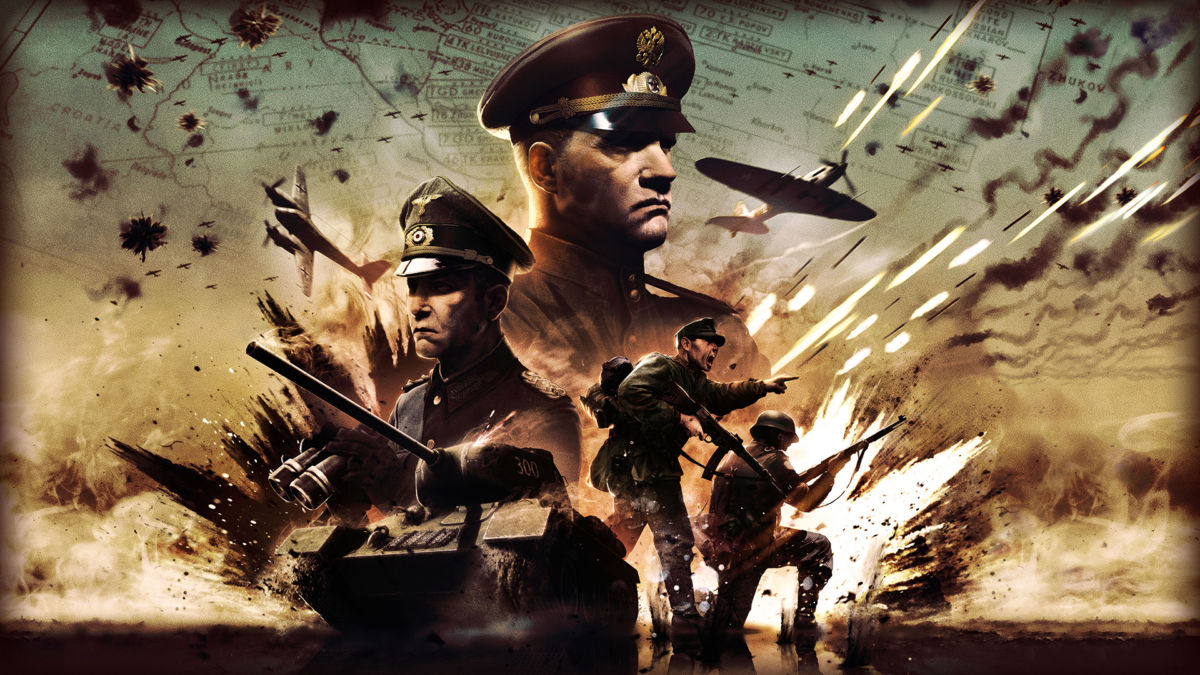
Developer: Eugen Systems
Publisher: Eugen Systems
Platform(s): PC
In comparison to some of the larger RTS franchises on the market, many of Eugen’s strategy titles, including RUSE and Wargame, can be considered underrated. However, the Wargame series in particular has garnered Eugen Systems a dedicated following, as well as hitting upon a niche of RTS gaming that has let it carve out its own place in the market.
The release of Steel Division: Normandy 44 and its sequel Steel Division 2 split the fanbase due Steel Division’s updates to deck-building and departure from the Cold War setting, opting for an adaptation of major operations of World War Two. In its DNA Steel Division 2 still retains the deep, complex, and engaging tactical gameplay of the preceding Wargame series, while also making significant quality-of-life improvements and refining the solid Army General campaign system.
Steel Division 2 focuses the action on the Eastern Front, which in itself is a less common design decision in historical strategy games, as the exploits of the non-Soviet Allies has seen far more attention. This approach, in fact, only adds to Steel Division’s quality as it does more to respectfully illustrate the dynamics of Eastern Front warfare than many other more popular games have attempted in the past.
10. Sword of the Stars
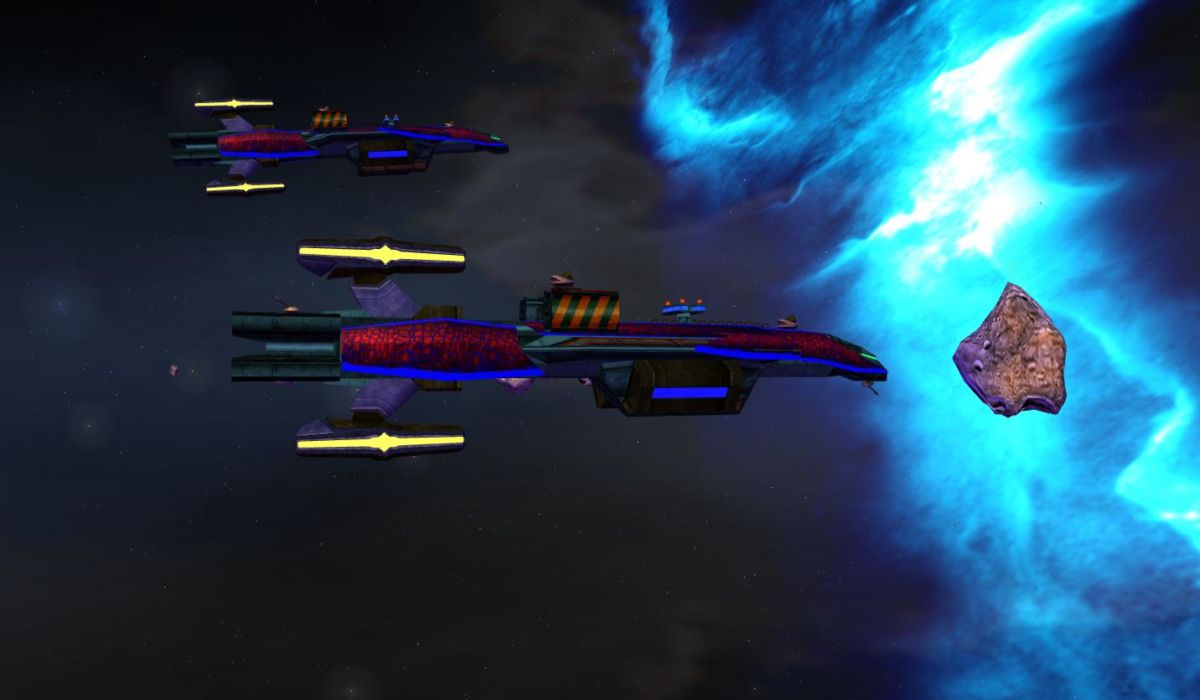
Developer: Kerberos Productions
Publisher: Lighthouse Interactive, Paradox Interactive, Destineer
Platform(s): PC
Empire-building 4X strategy games have consistently been popular due to the successes of the Civilization series, Endless Space 2, and Stellaris. The sci-fi setting, such as the latter two games, is especially common in these types of games, with Stellaris in particular dominating discourse and the market due to its unique brand of real-time grand strategy and impressive scale.
One of the many elements that sci-fi 4X games try to incorporate, with mixed success, is a robust tactical combat system, a la Total War, so that players can use their tailor made fleets for their intended roles and observe them in glorious combat. Of all the games to get this right, Sword of the Stars stands above the rest with its solid balance between complex strategic gameplay and stunning real-time tactical battles with ship designs that have legitimate combat implications.
Sword of the Stars wasn’t a massive hit when it initially launched, due to it being from a small studio and interest focusing mostly on Firaxis’ historical Civilization series. As a result, this makes Sword of the Stars one of the most underrated strategy games of all time.
READ NEXT: 15 Best Strategy Games for Low-End PCs
Some of the coverage you find on Cultured Vultures contains affiliate links, which provide us with small commissions based on purchases made from visiting our site. We cover gaming news, movie reviews, wrestling and much more.


